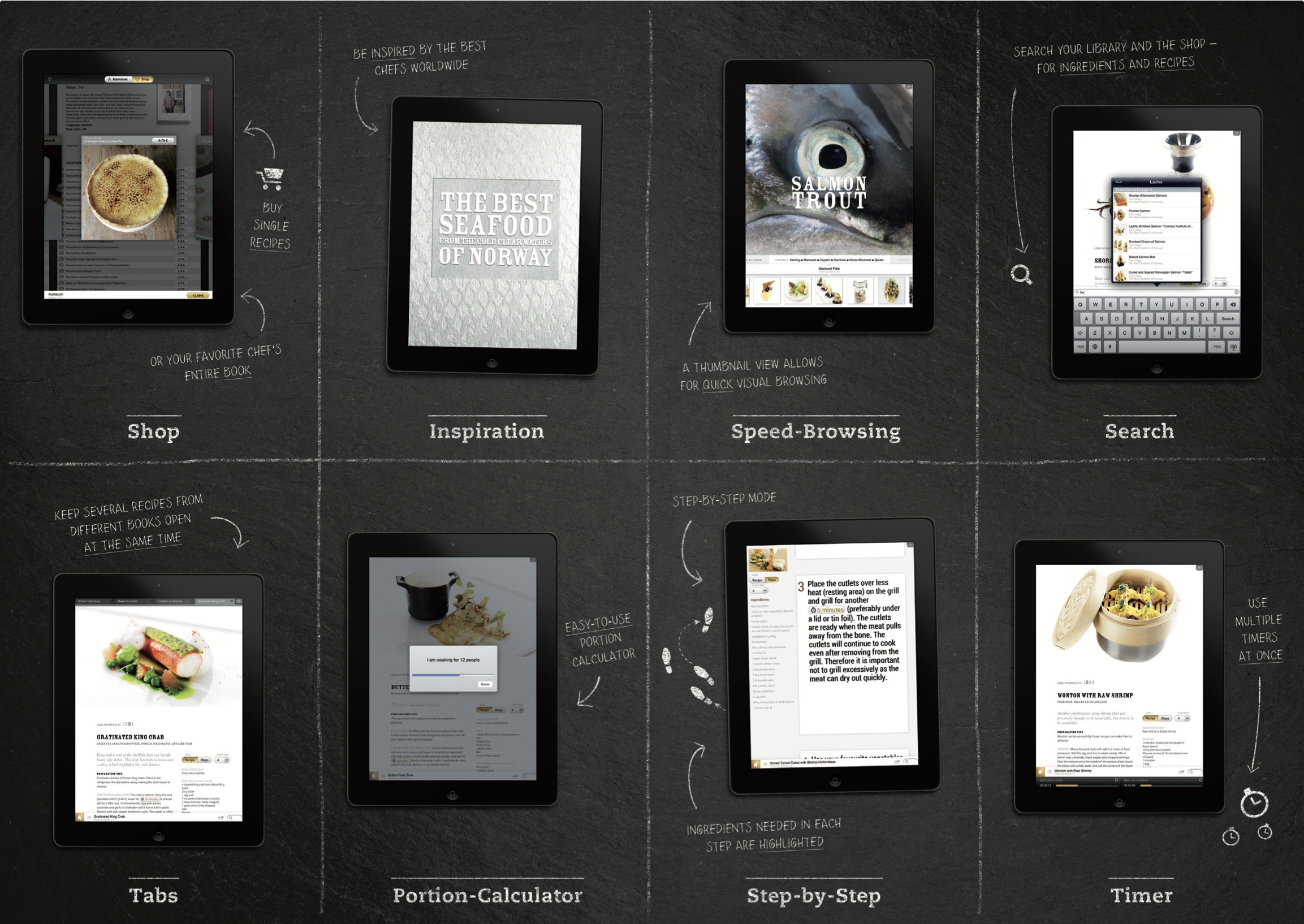The Caramelized Effect: Pioneering the Future of Digital Cooking
STARTUP
In the journey from a fervent passion for cooking to the birth of a digital revolution, the Caramelized Smart Cookbooks story is one of transformative innovation. This case study delves into how an ambitious idea influenced the digitalization of the culinary arts by melding technology with the timeless love for cooking.
The Vision
The journey began with a simple observation: the average home cook owns about 10 cookbooks but rarely uses more than three recipes per book. This discrepancy highlighted an opportunity to enhance accessibility and usability of these culinary guides. The advent of tablets presented a novel avenue to digitize and enrich the cooking experience, making recipes more interactive, convenient, and tailored to the modern cook’s needs.
Initial Steps and Partnerships
Armed with a prototype that revolutionized recipe interaction – featuring scalable recipes, integrated timers, shopping lists, and video tutorials – conversations with leading publishers blossomed into a partnership with Tim Mälzer, Germany's renowned chef, and Random House. This alliance was the first of many, leading to a collection of over 100 global cookbooks awaiting digitization and garnered major press attention.
Addressing the Problem
The digital era posed a challenge to traditional cookbooks, especially with the rise of e-books. Many cooking enthusiasts yearned for the design quality of physical books without the impracticality of having them in a kitchen environment. The mission was to capture the essence of physical cookbooks in a digital form, adding unique value unachievable in print.
Innovative Approach
The journey of Caramelized Smart Cookbooks was marked by a steadfast commitment to user-centric design and the seamless integration of technology into the culinary experience. At its core, the project revolved around deeply understanding the daily cooking rituals and challenges faced by home chefs. Through extensive user interviews and behavioral observations, the team gathered invaluable insights into what cooks truly desired in their kitchen encounters.
This user-first approach led to the ideation of a digital platform that not only digitized traditional cookbooks but also infused them with interactive elements such as scalable recipes, integrated timers, and multimedia cooking guides. The innovation lay in how technology was employed not as a mere add-on but as an essential ingredient to enhance and simplify the cooking process.
Launch and Iterative Development
Launching as a Minimal Lovable Product (MLP), Caramelized prioritized features that struck a balance between impact and effort, guided by the MoSCoW method. Rapid prototyping enabled swift feedback gathering, shaping the evolution of the app. Post-launch, app store statistics and in-app analytics, alongside ongoing customer feedback, drove continuous refinement and feature development.
Conclusion
While the Caramelized Smart Cookbooks project ultimately concluded its operations due to funding challenges, its legacy in the digital culinary world is undeniable. As a forerunner in integrating technology with the art of cooking, Caramelized laid the groundwork for a new wave of digital culinary innovation.


